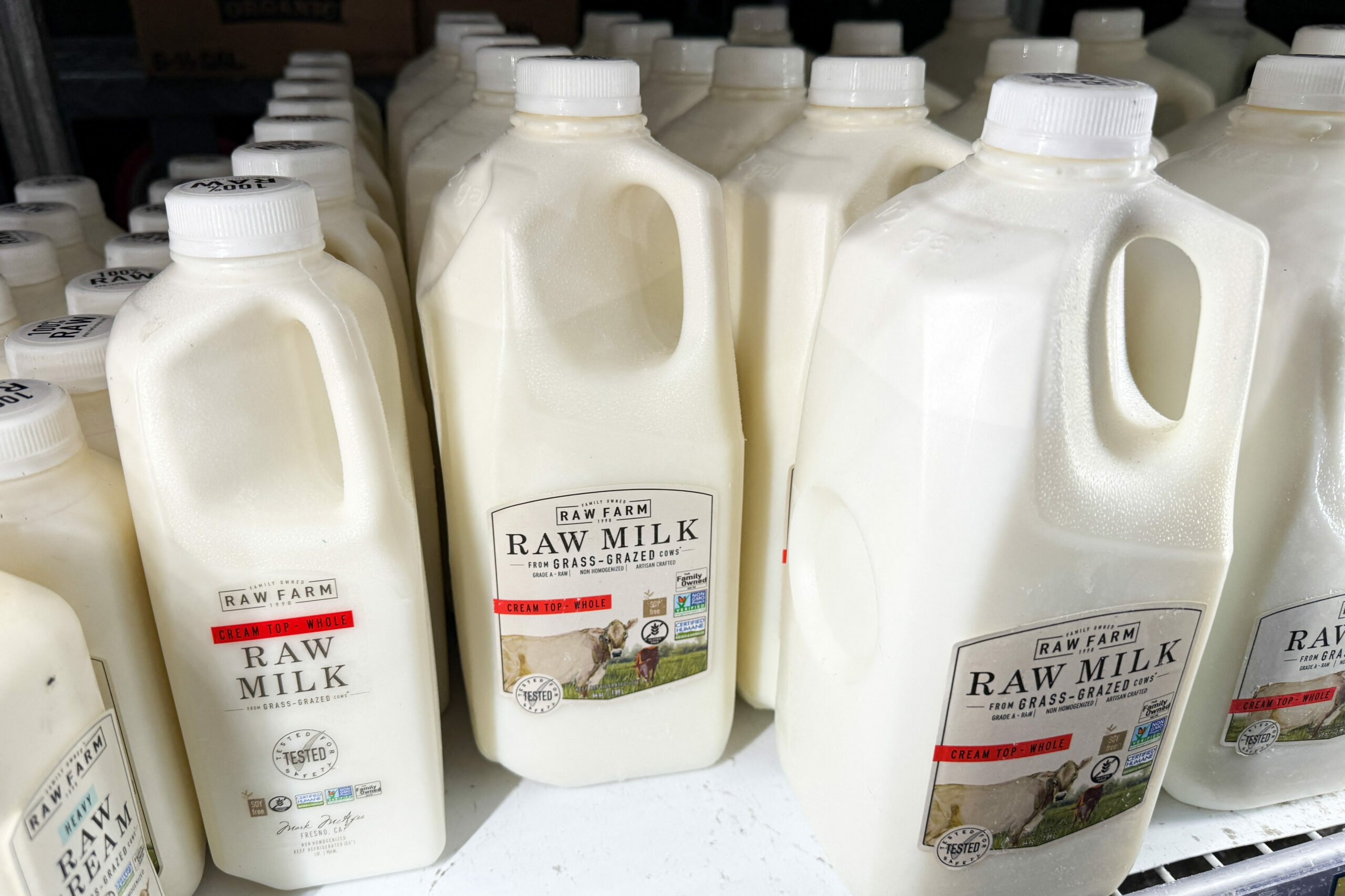Pasteurization has long been considered a world-changing public health advancement. With a new trend on the rise, national authorities are speaking out.

National Experts Share 10 Facts About Raw Milk Consumption

Even as avian flu has recently infected birds and cattle at farms and dairies, a startling trend’s been emerging: Humans, including those who have had no direct contact with farm animals, have been testing positive for the potentially lethal virus.
As of November 18, 2024, the Centers for Disease Control and Prevention (CDC) had confirmed 52 human cases of bird flu since April of this year. Yesterday, on December 10, California’s Marin County announced another suspected case affecting a child “who experienced fever and vomiting after drinking raw milk.”
The CDC notes that people with occupational exposure to infected animals are at higher risk of contracting bird flu, “such as poultry cullers, poultry workers, and dairy farm workers.” While authorities have stated that the general risk to the public is low and that milk consumption is considered safe, cases like that in Marin Country suggest the illness may also be spreading through the consumption of raw dairy products, or those that have not been pasteurized. The FDA says “high risk choices” include products such as, but not limited to, unpasteurized soft cheeses and queso fresco-style cheeses.
Even as food recalls hit record volumes this year—with multiple including soft cheeses and milk—market experts report raw milk sales have increased. The Center for Science in the Public Interest says raw dairy sales “continue to climb.” The consumer advocacy group continues: “Data from NielsenIQ indicate sales of raw milk increased 20 to 65 percent since last year, showing no signs of flagging in the midst of the dairy cattle outbreak.” Much of this is thanks to promotion from social media influencers who purport to be authorities in naturopathic health and fitness, as well as other figures without clinical health training, like Robert F. Kennedy, Jr., whom Donald Trump has nominated for head of the Department of Health and Human Services. This week it was reported that RFK has tapped a California CEO heading a raw milk producer to be an FDA adviser.
In response to the trend, the U.S. Food and Drug Administration (FDA) states: “Raw milk can contain a variety of disease-causing pathogens, as demonstrated by numerous scientific studies.” Salmonella, E. coli, Listeria monocytogenes, and Campylobacter are just some of the most common “disease-causing pathogens” the FDA references.
The FDA continues: “Pasteurization effectively kills raw milk pathogens without any significant impact on milk nutritional quality.”
Earlier this year, the FDA published a fact sheet to set the record straight and educate the American public with the following facts about raw milk. Each of these points was supported with multiple published research sources:
- Raw milk does not contain [the antibacterial peptide] nisin for pathogen inhibition
- Raw milk does not contain natural antimicrobial components that make milk safe
- Raw milk is not nutritionally superior to pasteurized milk
- There are no additional proteases and lipases [enzymes that break down food] in raw milk that facilitate milk digestion
- There are no immunoglobulins [infection fighting proteins] in raw milk that enhance the human immune system
- Raw milk is not an immune system building food and is particularly unsafe for children
- There are no beneficial bacteria in raw milk for gastrointestinal health
- Raw milk is not more effective in preventing osteoporosis than pasteurized milk
- Raw milk does not cure or treat asthma and allergy
- Raw milk does not cure lactose intolerance.
“These studies, along with numerous foodborne outbreaks, clearly demonstrate the risk associated with drinking raw milk,” the FDA says.
So, as you stock up on groceries with safety in mind, take note that multiple health authorities warn against raw dairy. Pasteurized products are safer, especially with flu actively being transmitted between animals that are part of our food chain.
For daily wellness updates, subscribe to The Healthy by Reader’s Digest newsletter and follow The Healthy on Facebook and Instagram. Keep reading:



















